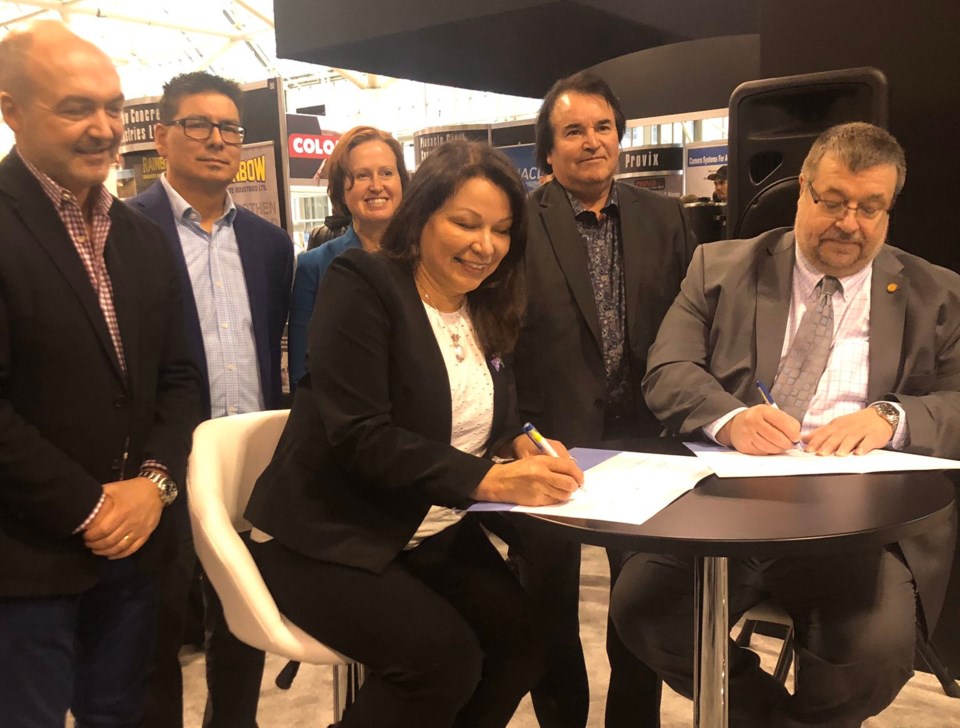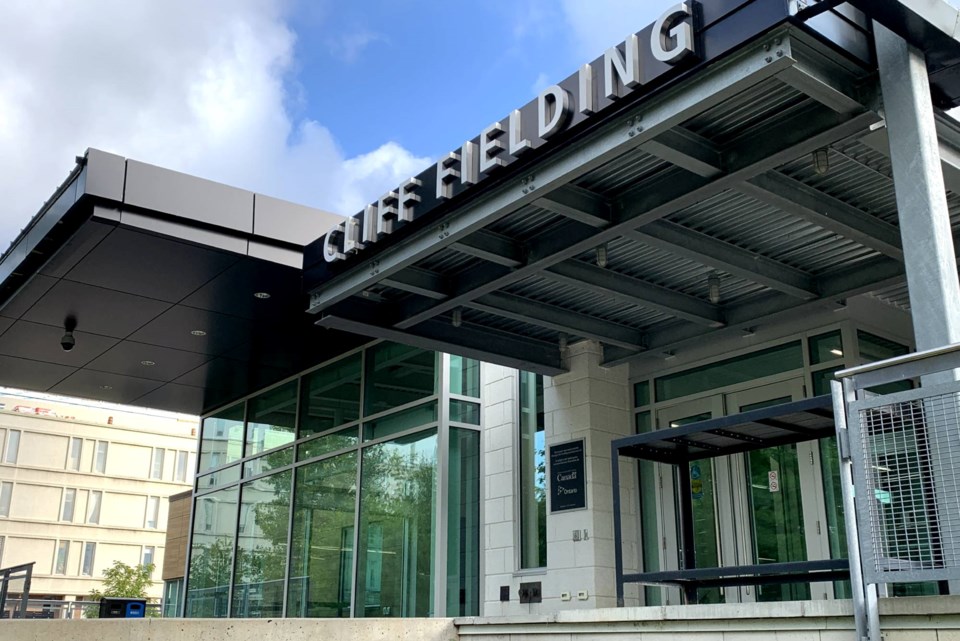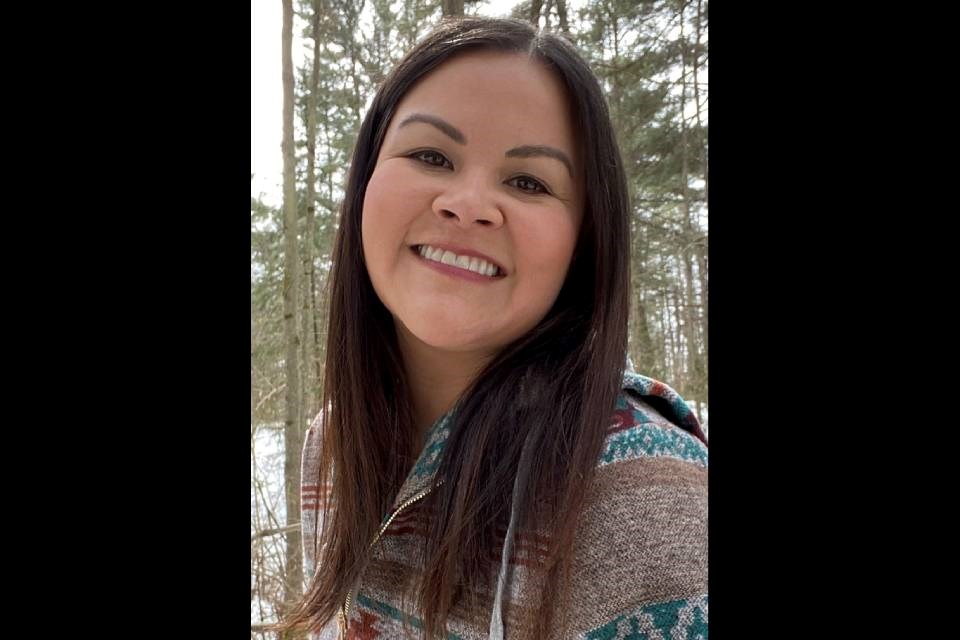Despite growing up in a family full of miners, Jenny-Lou Campbell didn’t see herself following the same career path.
But opportunity led her there anyway, and now the Sudburian is taking the lead on an innovative new project as the newly installed executive director of the Indigenous Centre of Excellence for Mineral Development (ICEMD).
In the works for more than a decade, the centre was initiated by the Waubetek Business Development Corporation as part of a greater mining strategy designed to engage more Indigenous people in the industry.
The Centre of Excellence will serve as a clearinghouse of information related to mining and mineral development that Indigenous communities can access to help navigate their role in the sector.
Campbell, a member of Serpent River First Nation whose childhood was split between Elliot Lake and Marathon, studied environmental sciences at Lakehead University and worked at Hemlo Gold Mines during the summers.
Rotating between a variety of roles — forklift operator, haulage truck driver, lab tech — gave her a wide range of experience and opened her eyes to future career options.
“I think that's where my interest was really piqued into recognizing the different opportunities that mining could offer to somebody,” Campbell said. “So I think that's what led me down that route in an unintentional way.”
She landed her first job out of school with Vale in Thompson, Man., where she started out as a survey technician, working her way up over 10 years to the position of mine planner.
Missing home, Campbell decided to return to Sudbury where she’s now been based for the last eight years.
Hatch, the global engineering firm, hired her as an estimator, where she stayed for five years before transitioning to more of an advocacy role with the Anishinabek Nation.
As the organization’s policy analyst on the mining file, she became well acquainted with Ontario’s mining legislation, including the Mining Act, the Critical Minerals Strategy, and the Building More Mines Act.
In her new role, Campbell will meld her Indigenous and mining perspectives, a shift that seems “fitting” for this stage of her career, she said.
“This opportunity kind of was presented to me, and it almost just felt like a no-brainer that I could really do something amazing in this role and just be a part of an Indigenous Centre of Excellence for Mineral Development.”
SEE: Organization gearing up to promote Indigenous-mining relationships
Since she first started out, there has been some progress made in how Indigenous rights are considered in resource development projects, Campbell said. As an example, she pointed to the notion of free, prior and informed consent (FPIC) under the United Nations Declaration of the Rights of Indigenous Peoples (UNDRIP), which was introduced in 2007 and endorsed by Canada three years later.
Under pressure to meet certain social obligations in the communities in which they operate, companies are recognizing a need to incorporate Indigenous perspectives into everything they do.
“The ultimate goal is to have more First Nations and Indigenous peoples working in the industry, so that they can offer those perspectives in every single aspect, not only in operations and operating machinery, but when it comes to the technical, the legal, the consultation side of things,” she said.
“We need somebody in every one of those roles to try to, especially, start integrating Indigenous knowledge and Indigenous ways of knowing and governance into some of the processes that are coming down the pipeline.”

The Centre of Excellence aims to be a one-stop shop for all the information that communities need to make informed decisions, she said — not an easy feat, especially for those communities who have little to no experience with the mining sector and are getting involved for the first time.
“We're definitely still building up that information … for interested communities so that they can kind of have a starting place.”
Campbell is still settling into her new role, but work is already underway.
In 2020, Waubetek and Laurentian University signed an affiliation agreement signalling their intent to work together on the Centre of Excellence. As such, its office will be located in the Cliff Fielding Research Innovation and Engineering Building, part of the university’s Goodman School of Mines.
At least two more staff members will be hired — a research manager and an administrative assistant — although Campbell said there is potential for additional staff down the road. And the organization already has a board of directors, which will help guide its direction.
Members include Dawn Madahbee Leach, the general manager of Waubetek and a key driving force behind the Centre’s creation, and Dr. Nadia Mykytczuk, the CEO and president of MIRARCO and the executive director of the Goodman School of Mines.
They’ve already started gathering data for the clearinghouse, and they’re now in the process of sourcing adequate technology for its storage, which will eventually include a GIS database, Campbell added.

Once operations are running smoothly, Campbell said they’ll be holding roundtable discussions with Indigenous leadership, developing workshops, and holding seminars, with an eye to holding an annual event.
She’s also slated to speak at a variety of events. In early May, she addressed the Water and Mining Conference in Montreal, and will moderate a panel at the BEV In Depth: Mines to Mobility conference in Sudbury at the end of the month. She’s also eyeing up the annual PDAC conference, which next takes place in Toronto in March 2026.
A final piece of the puzzle will be seeking out additional industry partnerships.
Rio Tinto came on board in 2019 as the founding industry partner, with an endowment of $1 million over five years.
But Campbell is hopeful there are other companies out there that see the Centre’s value and what it can bring to the industry. She’ll be pursuing those relationships as work gets underway.
“We’re very hopeful that other companies will recognize the importance that this centre can contribute to Ontario, Northern Ontario, and First Nations and the industry as a whole,” Campbell said.




